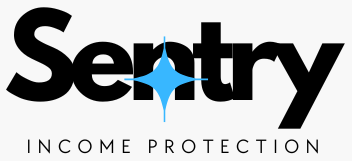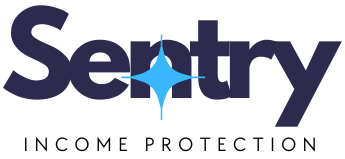Own Occupation Disability Insurance Mckinney TX
Call (469) 905-4422 for a free Disability Insurance quote! Let Sentry Income Protection safeguard your future.
Looking to protect your income as a self-employed professional? Disability insurance can be a lifeline, but understanding your options is key. We’ll break it down clearly. As a trusted independent disability insurance agency, Sentry Income Protection is here to help. Call us at 469-905-4422 we’re happy to chat!
Own Occupation Disability Insurance McKinney TX
In McKinney, one of the most important yet often overlooked financial topics is protecting the income that makes everything else possible. Most people carefully insure their home in Stonebridge Ranch or their vehicles, yet the paycheck funding those assets often goes unprotected. Own occupation disability insurance solves this problem, and understanding how it works can fundamentally change your approach to financial security.
The Foundation: Understanding Own Occupation Coverage
Own occupation disability insurance pays benefits when you cannot perform the essential duties of your specific profession, regardless of whether you could work in some other capacity. This precise definition creates protection tailored to your specialized training and career.
Think about an orthopedic surgeon at Medical Center of McKinney who suffers a back injury preventing surgical procedures. That physician might transition into teaching, consulting, or administrative work at the hospital, but the surgical income vanishes. True own occupation coverage continues full benefit payments even while earning income in these alternative roles, because the policy protects your specific occupation, not your general capacity to work.
This specificity matters enormously. Alternative policy definitions require complete inability to work in any occupation, or they reduce benefits when you earn money doing something else. For McKinney professionals like trial attorneys, dentists, specialists, and business owners near Historic Downtown or Eldorado Parkway, true own occupation wording provides the protection your career actually needs.
Three Paths to Disability Protection
Disability income reaches you through three distinct channels: government benefits, employer sponsored plans, and individually owned contracts. Each serves different purposes, and understanding their limitations reveals where comprehensive protection requires private coverage.
Social Security Disability operates under extremely narrow qualifications. You must prove inability to perform any substantial work, not just your current profession. The condition must last at least one year or result in death. Applications take months to process, denial rates run high, and benefit amounts rarely match professional income levels. For a McKinney executive or physician earning substantial income, Social Security might cover 10 to 20 percent of actual earnings if approved, and the definition has no connection to your specialized skills or education.
Group long term disability through employers typically replaces 60 percent of base salary, often capping monthly benefits at amounts like $10,000 or $12,500. These plans generally exclude bonuses, profit sharing, partnership income, and business distributions that comprise significant portions of total compensation for many professionals. Coverage ends when employment ends. Definitions usually require inability to work in any occupation reasonably suited to your background rather than your specific role. Benefits become taxable income since employers pay premiums. If you leave to join a practice near Craig Ranch or start an independent firm, the coverage disappears.
Individual disability insurance addresses every limitation that government and group plans create. You purchase and own the policy directly. Coverage remains yours through any career change. Definitions can specify true own occupation protection. Benefits stay tax free when you pay premiums with after tax dollars. The contract cannot be cancelled or modified as long as premiums are paid.
Strategic Advantages of Private Individual Contracts
Private disability insurance represents more than enhanced group coverage. It's fundamentally different protection designed around your specific career path and income structure. For professionals whose compensation exceeds group plan limits, or who receive variable income through business ownership, partnerships, or performance bonuses, private policies can cover actual earnings rather than capped base salaries.
Ownership creates lasting security. Your policy remains active regardless of employer changes, career transitions, or business ventures. Someone moving from a corporate position to private practice, starting a firm, or shifting between specialties keeps identical coverage throughout. No requalification, no new underwriting, no gaps in protection. The insurance company cannot terminate your contract or adjust terms based on health changes, claims experience in your occupation, or company financial performance. Your rates and benefits lock in permanently.
Contract flexibility through riders transforms basic coverage into precisely calibrated protection matching your circumstances. These enhancements determine exactly how your policy responds across different disability scenarios.
Critical Riders That Customize Your Coverage
The residual disability rider stands among the most valuable enhancements available. It provides proportional benefits when you return to work but earn reduced income due to limited hours, modified duties, or decreased productivity. Instead of requiring complete disability for any payment, this rider compensates partial income loss during recovery and transition periods. For a professional rebuilding a client base or practice capacity, this flexibility proves essential.
Cost of living adjustments increase monthly benefits annually while you remain disabled, preserving purchasing power against inflation. Without this protection, someone disabled at age 40 collecting benefits until 65 watches inflation steadily erode the real value of those payments over 25 years. This rider becomes critical for younger professionals facing potentially long claim durations.
Future increase options allow raising coverage limits later without new medical examination or health questions. As income grows through partnership, practice expansion, or career advancement, coverage can increase proportionally. This proves particularly important for professionals in their 30s and 40s whose earnings still have substantial growth potential ahead.
Retirement contribution riders fund qualified retirement accounts during disability, ensuring long term savings continue building when you cannot work. For someone whose 401(k), profit sharing plan, or SEP IRA depends on active income, this rider prevents falling years behind on retirement accumulation during disability.
Student loan protection helps early career professionals managing education debt. These riders cover loan payments during disability, preventing default and credit damage when income stops. This matters especially for physicians and attorneys in McKinney still repaying graduate school loans.
Additional riders include catastrophic provisions paying extra benefits for severe impairments, presumptive disability clauses triggering full benefits for certain major losses regardless of work capacity, and automatic increases raising coverage annually without underwriting requirements.
How Benefits Are Structured
Individual policies typically replace 60 to 70 percent of gross income, with exact amounts depending on how your contract defines income. Business owners and partners should verify the policy covers draws, distributions, and variable compensation beyond just salary. Premium costs generally range from one to three percent of annual income based on selected options and riders.
Two timeframes control benefit delivery. The elimination period, commonly 90 or 180 days, determines how long you must remain disabled before payments begin. Consider this a time based deductible. The benefit period specifies payment duration: two years, five years, to age 65, to age 67, or potentially lifetime. Longer benefit periods increase cost but provide substantially better protection against serious long term disabilities.
Important contract features include waiver of premium provisions that suspend your payments while collecting benefits, meaning you don't pay premiums during the exact time you need coverage most. Mental health benefit limitations deserve attention, as many contracts cap payments for psychological conditions at 24 months. Superior carriers provide full duration benefits for these conditions, which matters given professional stress levels.
Protection Extends Beyond Personal Income
Your earnings don't simply fund personal lifestyle. They support family security and business operations. Disability stopping your paycheck immediately pressures mortgage payments, children's education funding, and household expenses. Private disability insurance maintains cash flow during recovery, avoiding forced retirement account withdrawals, accumulating debt, or selling assets under unfavorable conditions.
Business owners face operational challenges beyond personal expenses when disabled. Can the business continue paying you without your revenue production? Does the company need to hire someone covering your responsibilities? Private disability income can fund business overhead, fulfill partner buyout agreements, or provide time for orderly client transitions without forcing rushed sales.
Families with two high earning professionals often benefit from coordinating both coverage plans, ensuring adequate protection for both incomes while avoiding unnecessary duplication.
The Planning Process
Working with a financial advisor who understands both disability contracts and your profession makes the difference between adequate and comprehensive protection. The conversation begins by analyzing current income sources, existing employer or group coverage, and identifying gaps requiring private insurance.
Insurance carriers classify and underwrite occupations differently, so comparing multiple options identifies the best match for your specialty and situation. An advisor can walk you through carrier comparisons and contract language to ensure you understand exactly what protection you're purchasing.
Own occupation disability insurance represents strategic planning rather than emotional purchasing. For McKinney professionals, it belongs in essential planning discussions alongside life insurance and retirement strategy. Your income enables every other financial goal, and protecting it thoroughly deserves the same careful attention you give any other valuable asset you own.
Call 469-905-4422 for a Free Disability Insurance Quote! We represent all the top carriers and can provide an unbiased evaluation that meets your individual needs.
We specialize in private disability insurance for high-income professionals. Your information is secure and never shared.


